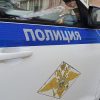 Authorities say tough measures will help fight money laundering and corruption Photo: JEAN-PHILIPPE KSIAZEK/AFP
Authorities say tough measures will help fight money laundering and corruption Photo: JEAN-PHILIPPE KSIAZEK/AFP
Kosovo averts crisis with restive ethnic Serb minority on Wednesday, dropping a demand to stop using Serbian dinars as currency and switch to the euro.
Kosovo's government earlier said that from Thursday it would insist that the country's ethnic Serbs no longer use dinars from neighboring Serbia, and joined the rest of Kosovo and switched to the euro.
Ethnic Serbs felt strongly. unhappy with the change as they receive salaries and pensions in dinars, as well as social security and child benefits.
There were fears that the new rule could lead to renewed unrest in the north of the ethnic Serb-dominated country .
Facing criticism from Western supporters, the government announced just hours before the ban took effect that it would postpone for now.
Kosovo's only «official currency».
Deputy Prime Minister Besnik Bislimi said: «We will not immediately take punitive measures, but we will take time to inform Serbian citizens.»
He told the government was «committed to possible transition periods so that citizens can adapt as much as possible faster, easier and with minimal damage.»
He insisted that the euro remains Kosovo's only official currency.
Kosovo unilaterally adopted the euro in 2002, despite that it was not a member of the eurozone or the EU.
The currency dispute risked plunging the Balkan country back into turmoil, just months after a shootout between Kosovo police and masked men. Serb militants at a monastery near the border with Serbia killed four people.
There are parallels between the bitter two-year battle over car license plates, in which thousands of ethnic Serbs continued to drive with Serb-issued license plates rather than those issued issued to Kosovo. Ethnic Serbs resisted these changes, sometimes resorting to violence.
Western diplomats have warned that the government's insistence that ethnic Serbs adopt the euro could lead to renewed unrest.
Serbia refuses. recognize Kosovo's declaration of independence in 2008 and tensions between the two neighbors represent one of the biggest flashpoints in the Balkans.
«Direct impact on daily life»
The US Embassy in Pristina said in a joint statement released by the US, UK, Germany, Italy and France: “We are concerned about the impact of this regulation in particular on schools and hospitals, for which no alternative process appears viable at this time. .
“This regulation will also have a direct impact on the daily lives of the vast majority of Kosovo Serbs who receive payments/financial assistance from Serbia.”
Five NATO countries have called for a suspension of the dinar ban. to ensure a longer transition period.
The request for a more gradual approach was met with anger on social media, with many Kosovars saying there should be no doubt that the country should only use one currency, the euro.
One Kosovar asked on Twitter: “ Dear Ambassador, will you allow the use of Russian rubles in Alaska?
Another commented: “No country in the world has license plates from two countries. No country in the world pays in two different currencies.»
Ana Brnabic, Serbia's prime minister, warned that compliance with the ruling could cause irreparable damage to the peace process with Kosovo, undermining EU-sponsored talks between Belgrade and Pristina «once and for all.»
Kosovo fought a bloody war of independence against Serbia in the late 1990s. The war ended after a 78-day NATO bombing campaign forced Serbian troops to withdraw from Kosovo.
Amid ongoing tensions, Serbia raised the combat readiness of its armed forces along the border several times in the past year.

























































Свежие комментарии